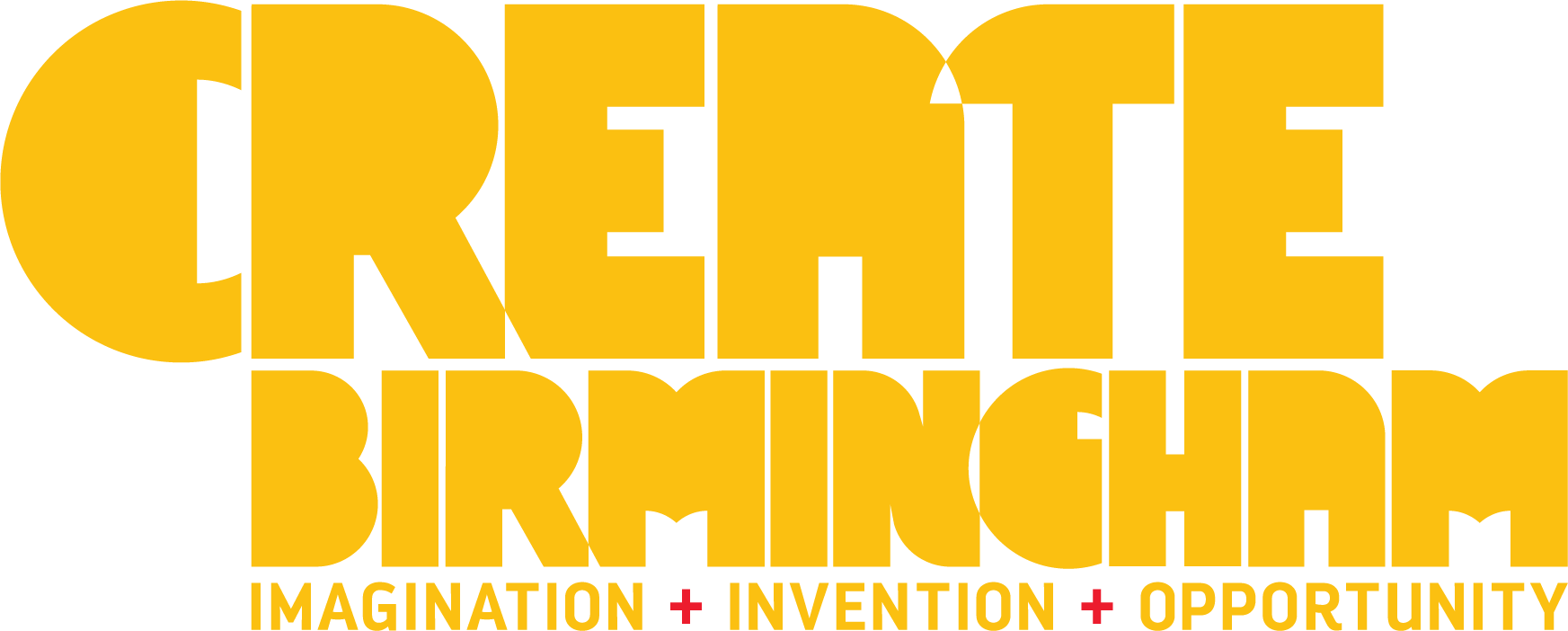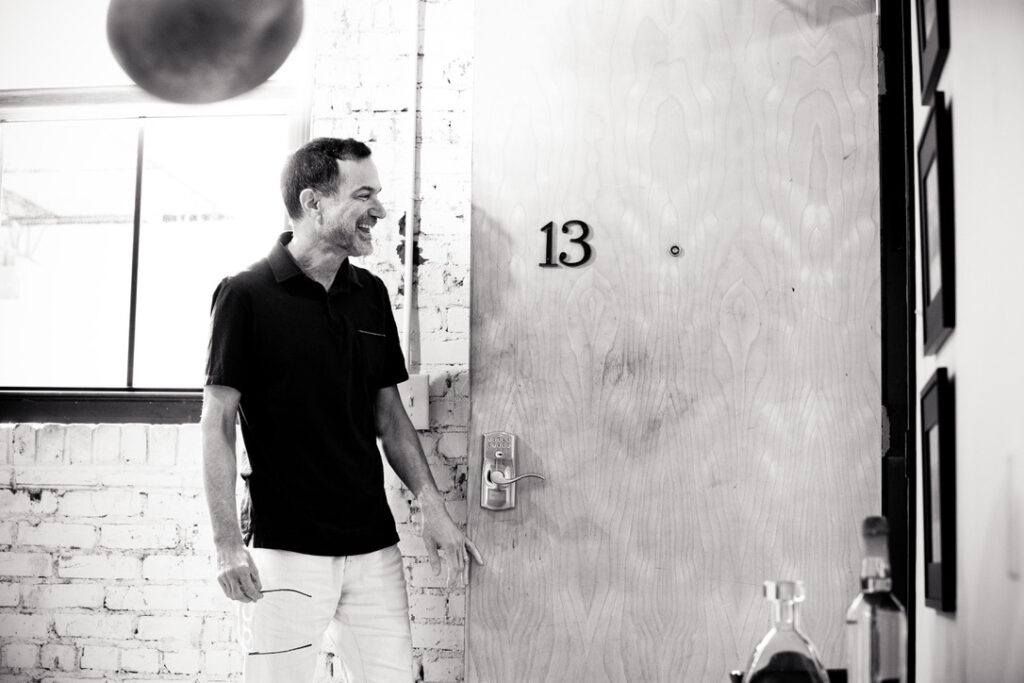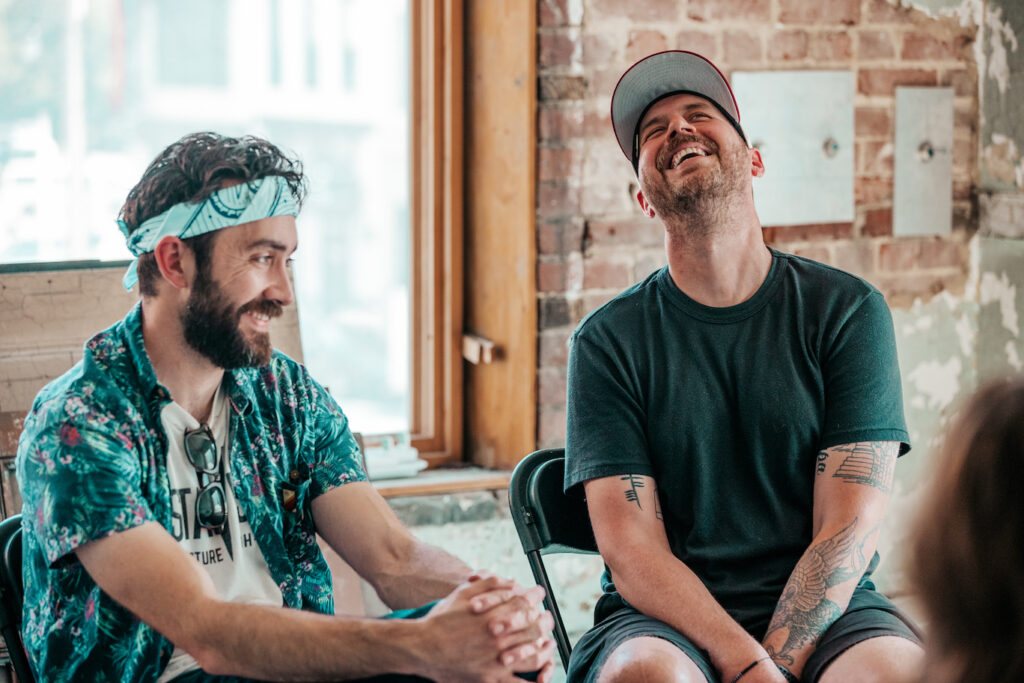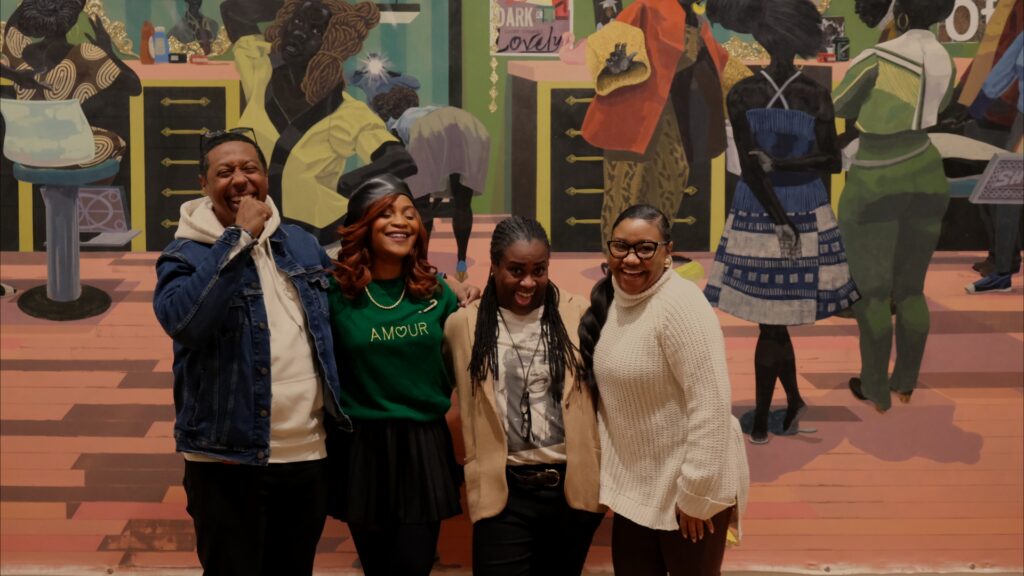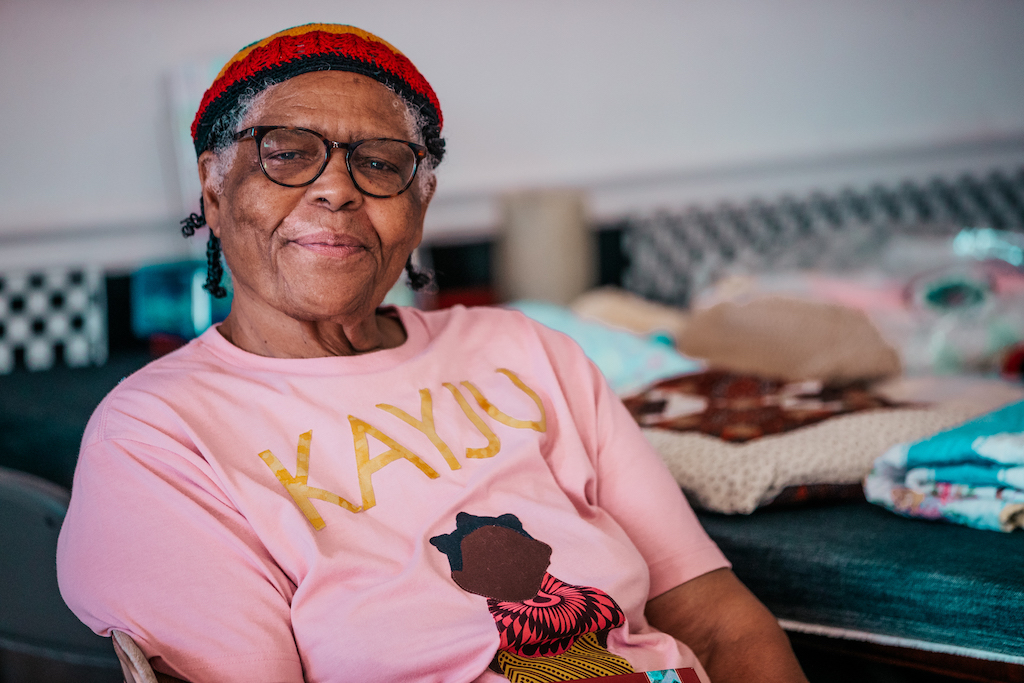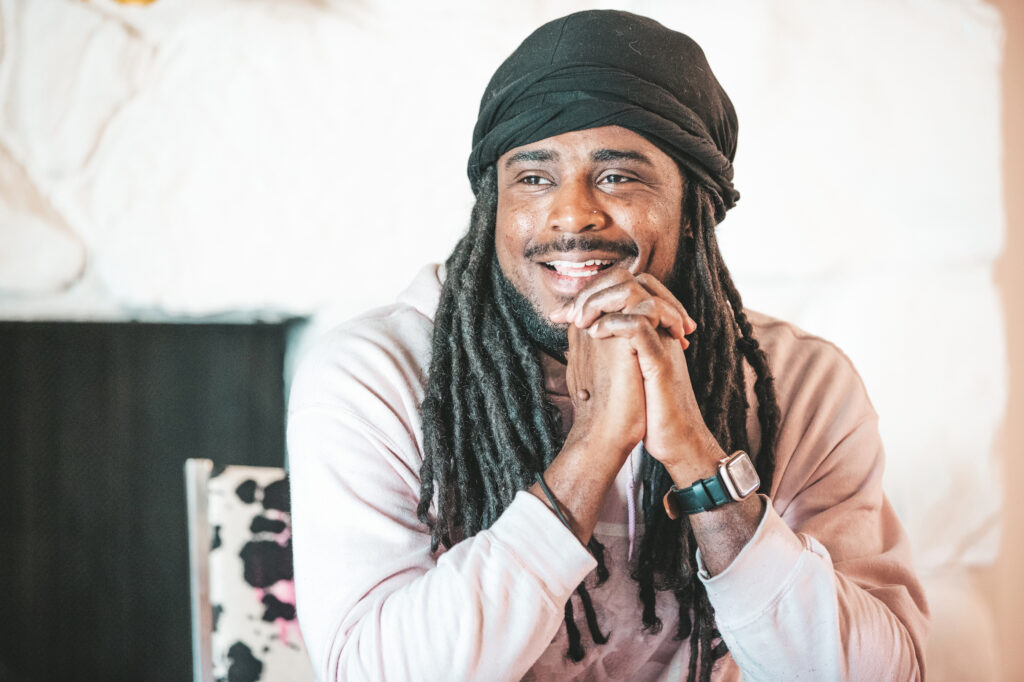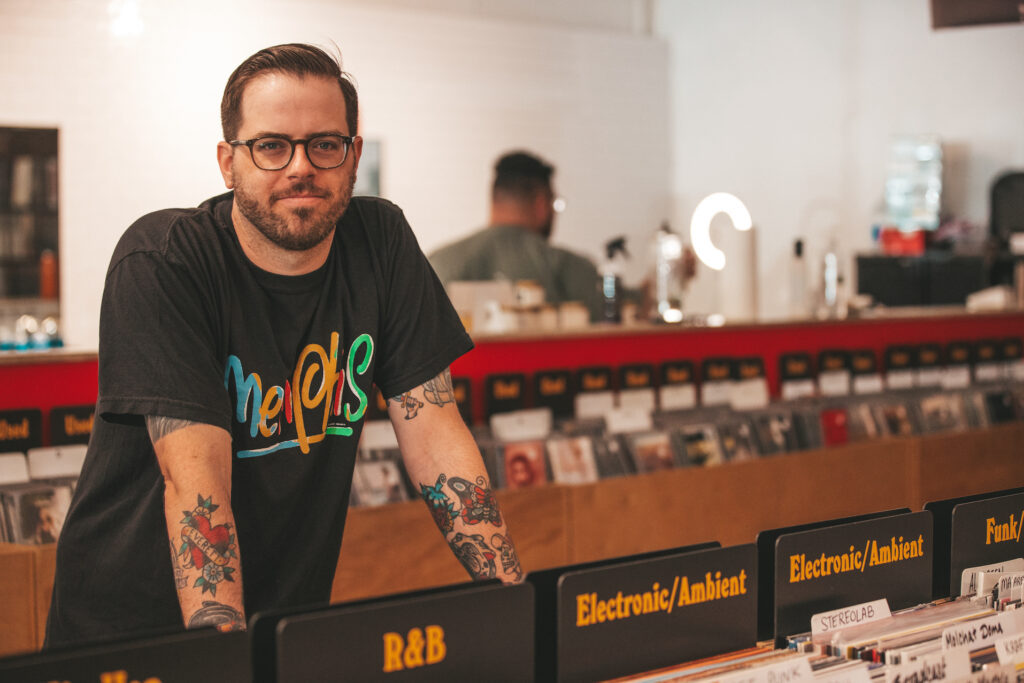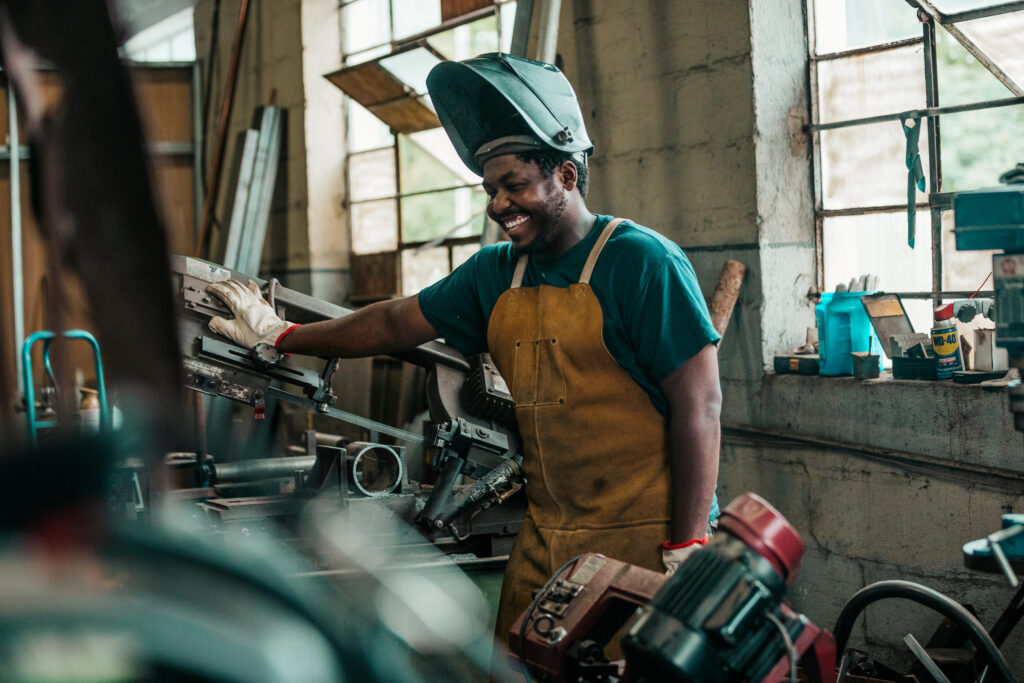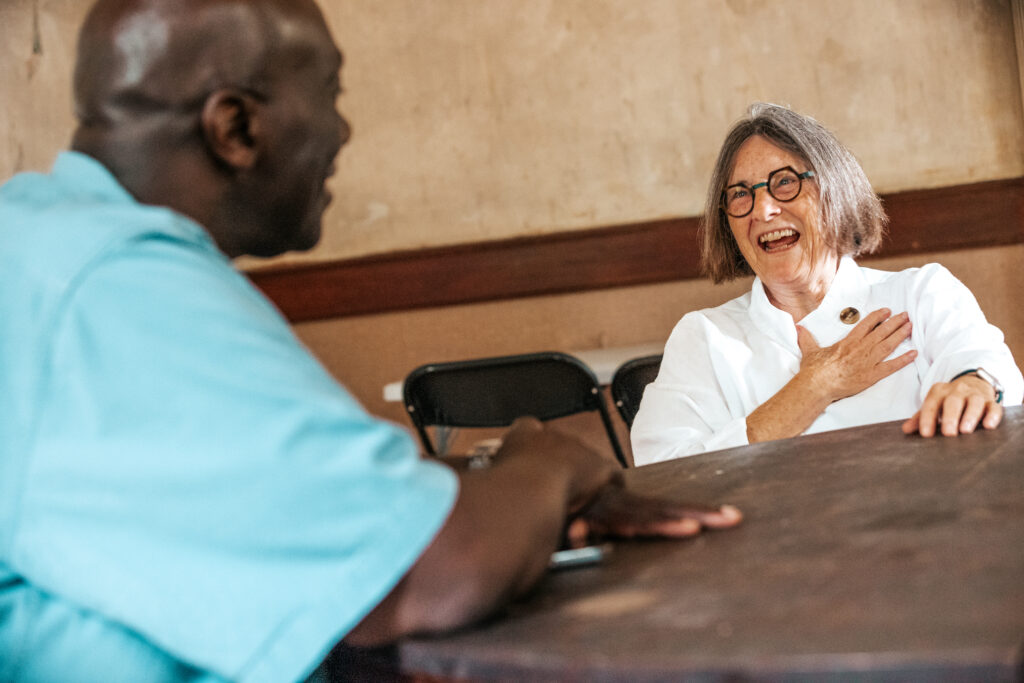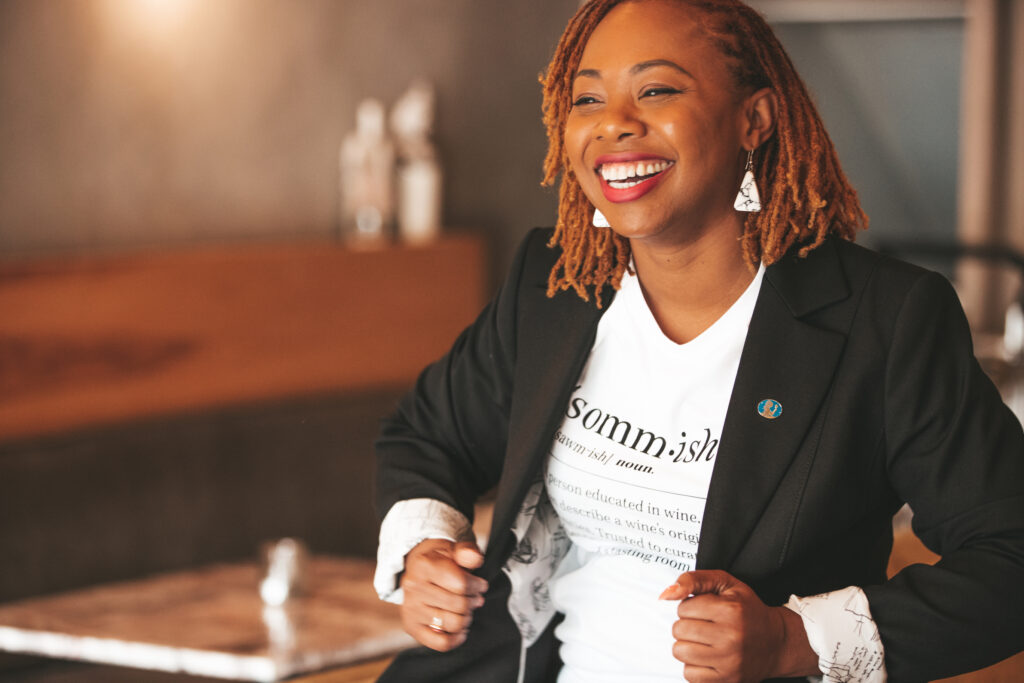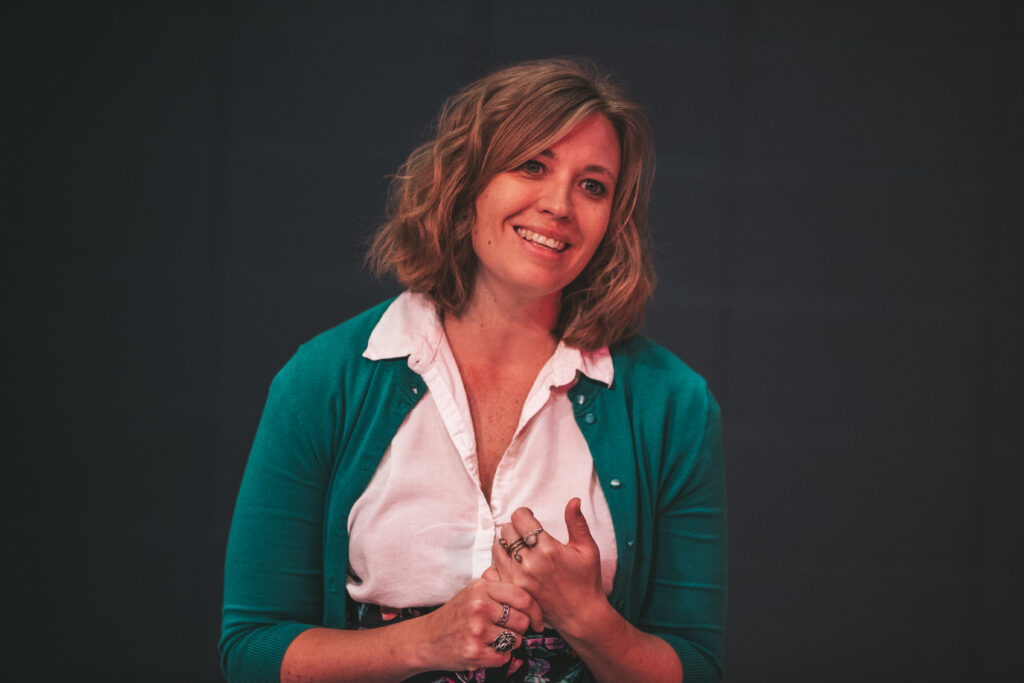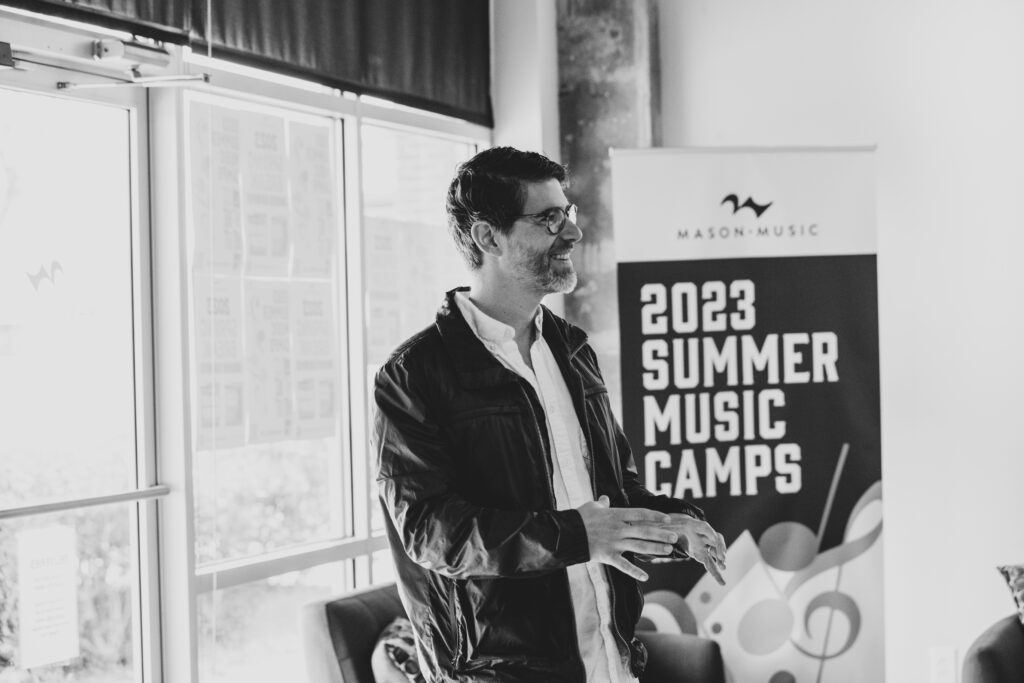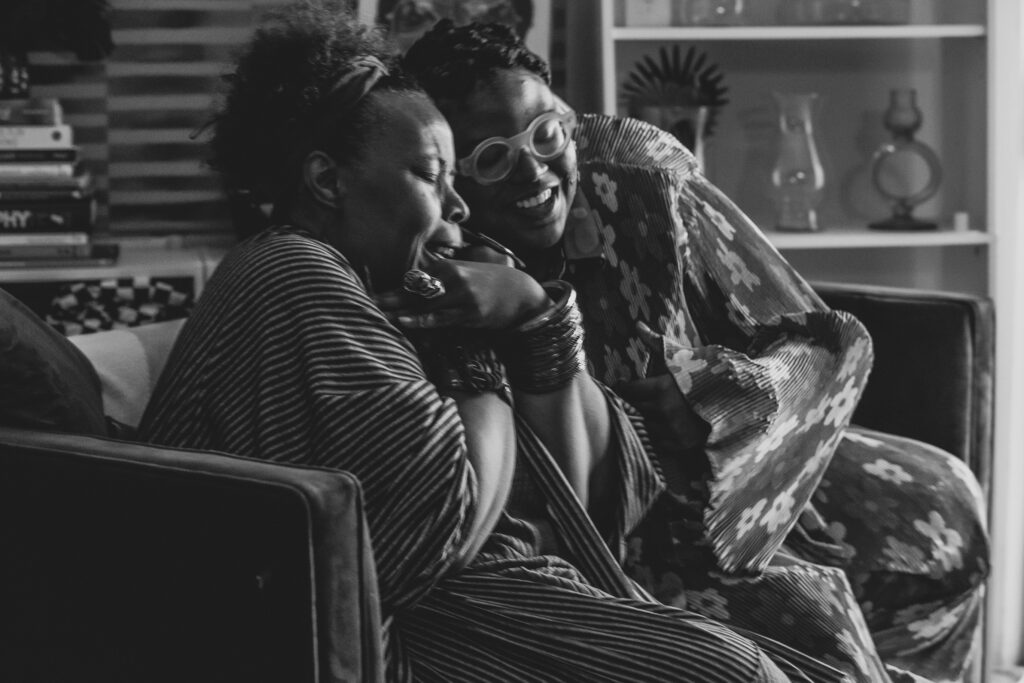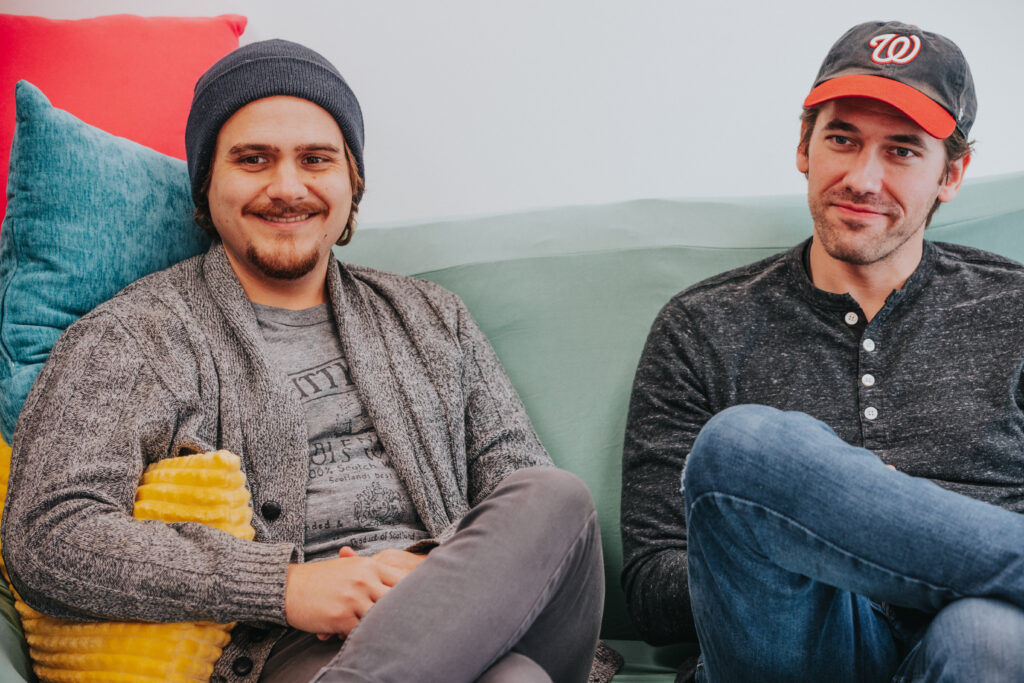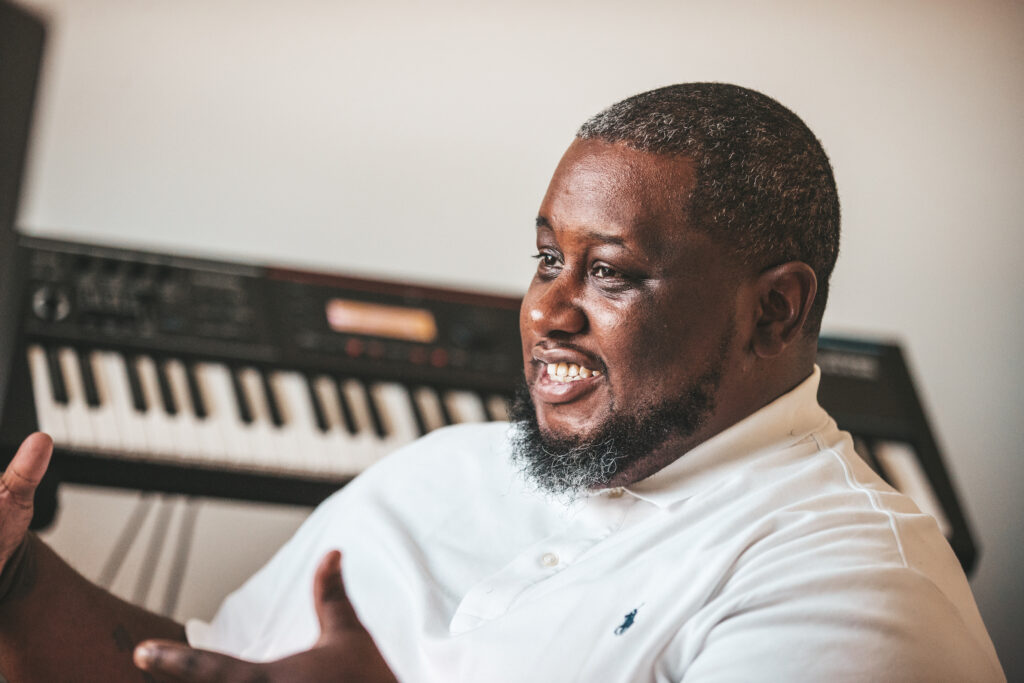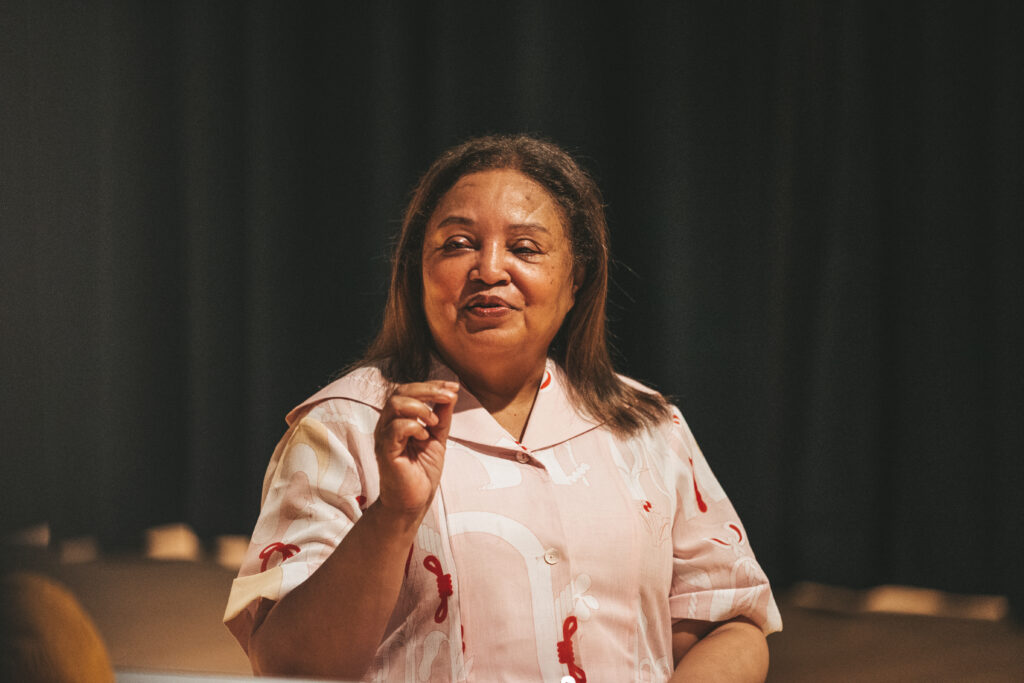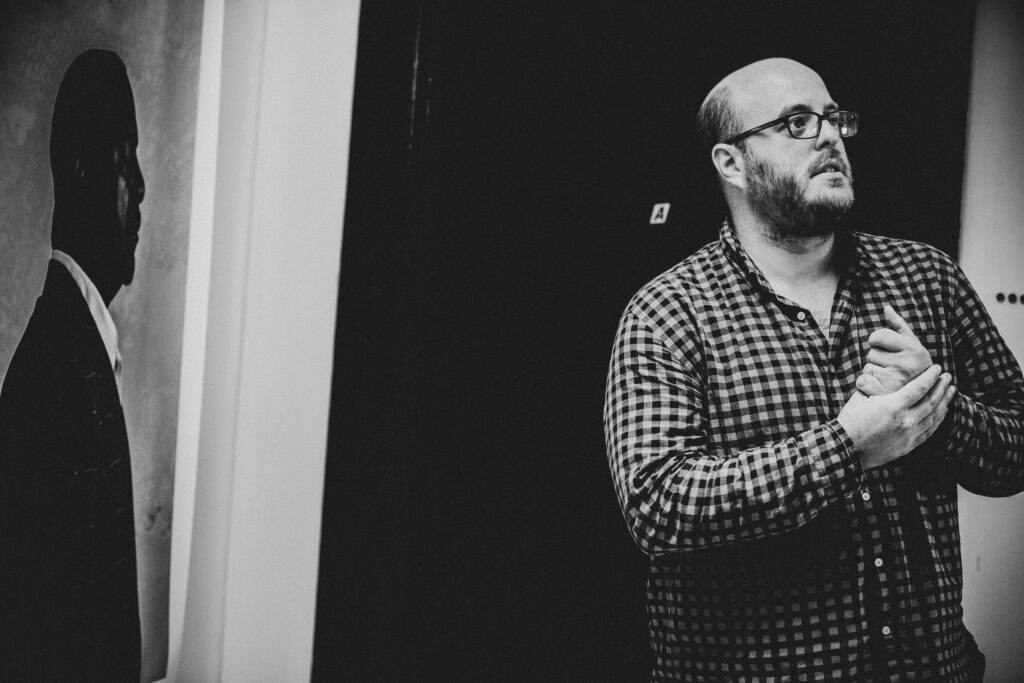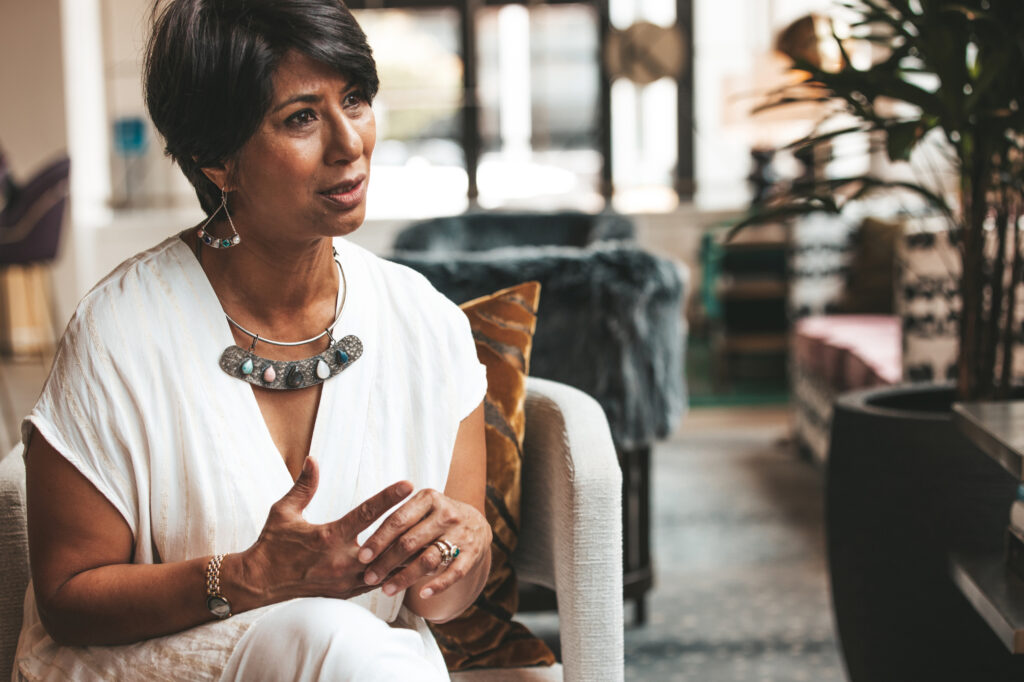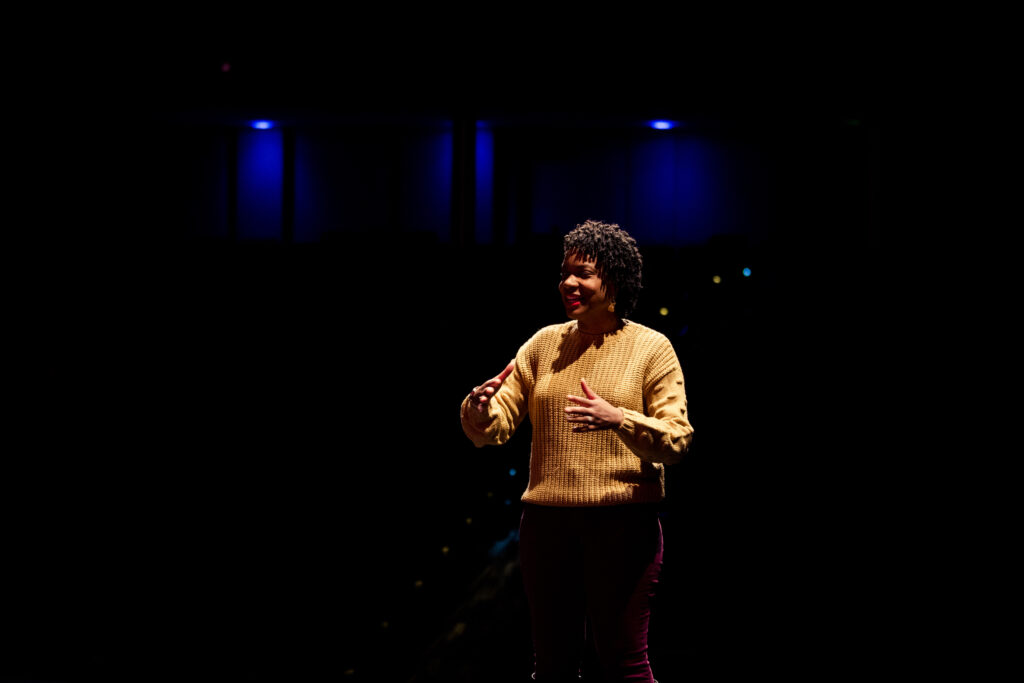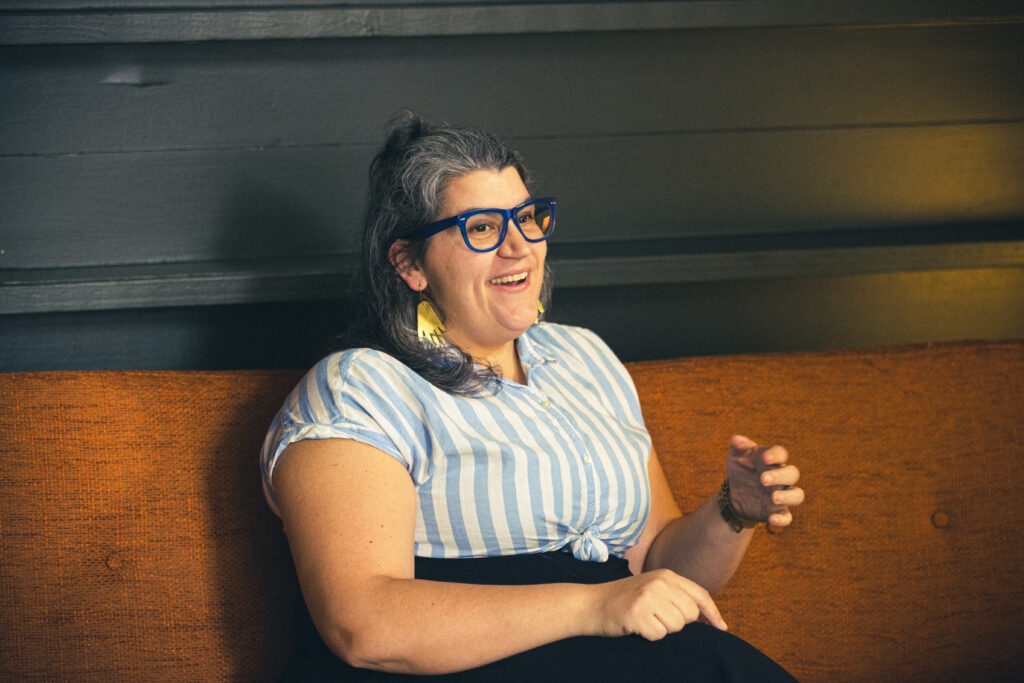Interview by Tonia Trotter
Photos by Ambre Amari
After 13 years at the helm of Create Birmingham, our President and CEO Buddy Palmer will retire next month as he and his husband, Bill, set sail for a new chapter in Portugal. The advocate for the arts and champion for small businesses has worked tirelessly to create avenues for economic growth for over three decades. While Buddy is often recognized, as the head of our organization, for his leadership role in our city, the man behind the agency is best known as a true friend who has touched the lives of many while helping to navigate pathways to success in the creative industries.
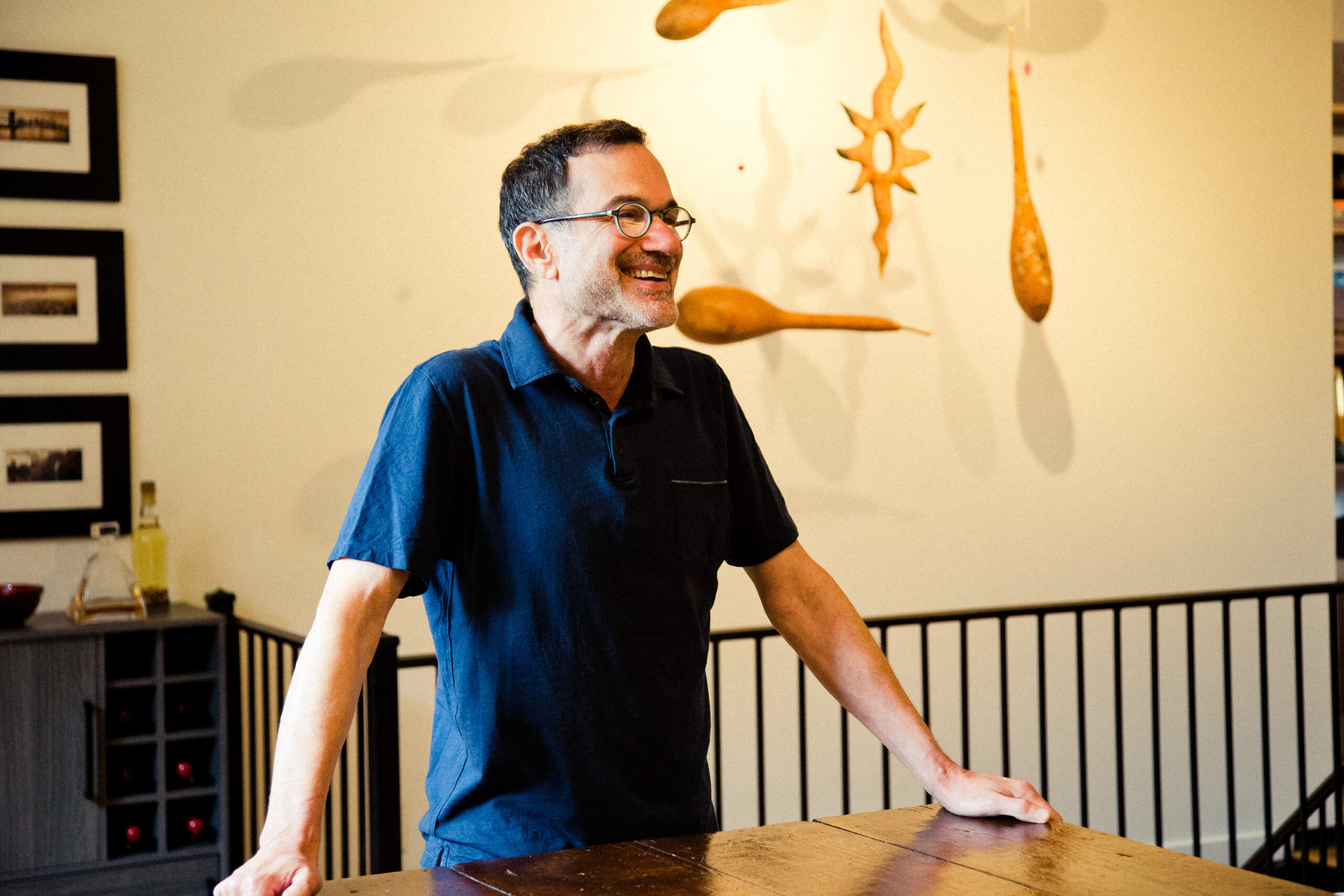 Over the past year, we’ve used the word “shift” a lot — within the creative sectors we support and certainly within our own organization. But Create Birmingham has been shifting since it began as the Cultural Alliance of Greater Birmingham and evolved into the creative industry economic development agency we are today. You led that transformation. How did it start? And where are we now?
Over the past year, we’ve used the word “shift” a lot — within the creative sectors we support and certainly within our own organization. But Create Birmingham has been shifting since it began as the Cultural Alliance of Greater Birmingham and evolved into the creative industry economic development agency we are today. You led that transformation. How did it start? And where are we now?A lot of our shifting had to do with timing — the timing of my arrival which was maybe two months before “the great recession” hit with full velocity. The organization was already changing. The three-year contract it had as a grantmaker on behalf of the county had not been renewed. and the board of directors recognized that reinvention was required.
Each of the organizations I’ve led over my 30-year career has gone through a reinvention, so I think I was well-suited to transition the Cultural Alliance to Create Birmingham at that moment in time. What was apparent to me was that although we were in the worst economic low since the great depression, our culinary scene was flourishing, as was our DIY music scene. There was this commercial side to the creative sector that had not been hit as hard as the nonprofit arts and culture side of things.
I’d been in Louisiana at a time when the state had undergone a creative industries study, and it was apparent to me that Birmingham was poised for a similar examination. You don’t know where you’re going without a map. And what can look like organic growth on the surface is always supported by some type of unseen structure.
When we dove into our creative industries study, we didn’t have a clear vision of our endgame — we just knew the work needed to be done. Little did we know that it would end up transforming our organization entirely by broadening our mission, our constituency, and a complete refocus of our work.
After all that research and documentation, we were left thinking, “Now, what?” And it’s been six years of “Now, what?” That philosophy challenges us constantly to consider how we contribute, who we can serve, and where we need to show up. We still have that report as a touchstone, and there is still work we haven’t touched because we are small, and we’ve chosen to deepen our work rather than broaden it. Thankfully, the ecosystem of support for entrepreneurs has grown as our creative industries have grown. We now get to be one of many players in facilitating real change, but there is still plenty of work to go around.
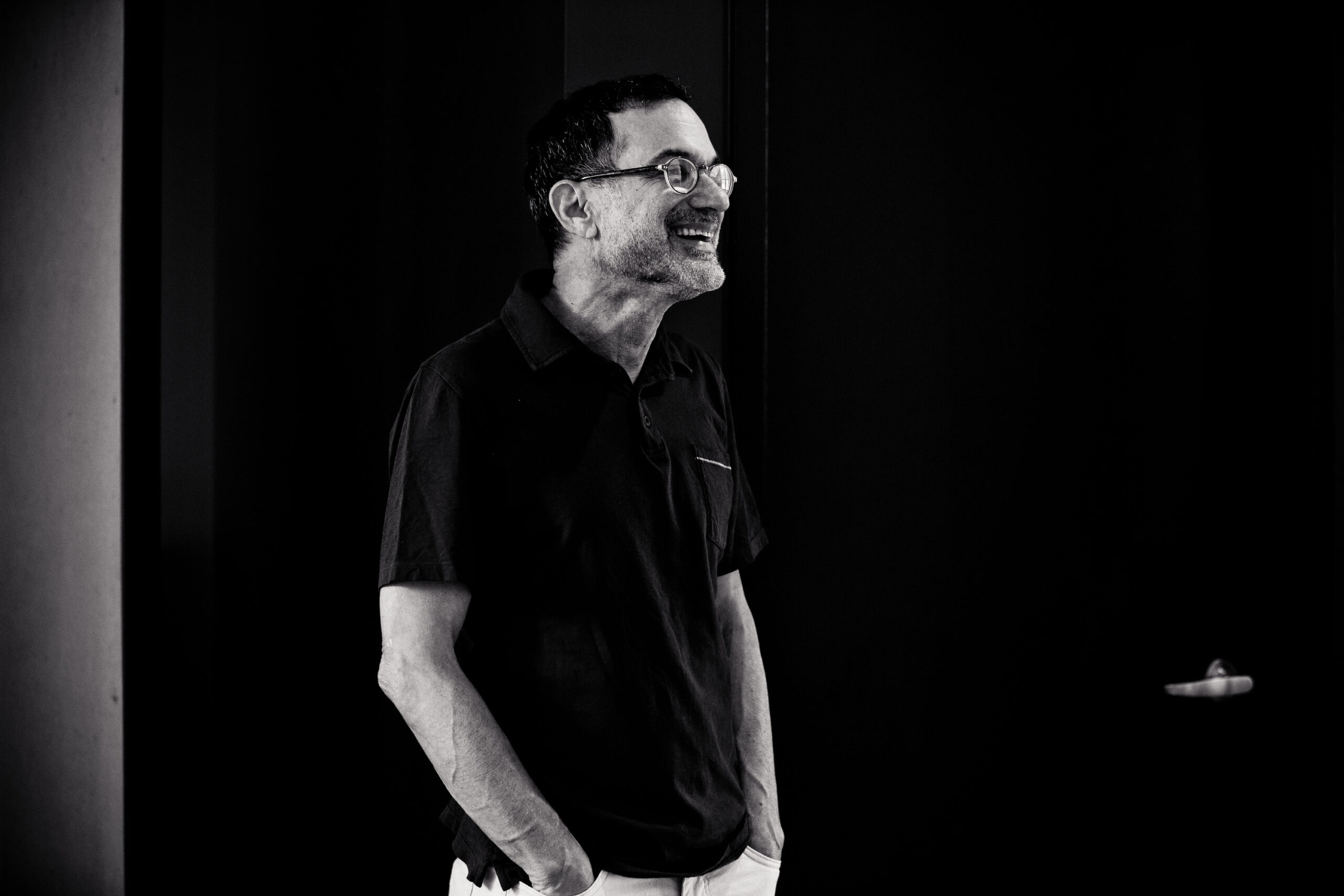 Looking forward as our community grows and our city’s identity and creative industries evolve, there will always be work to be done. But looking back, what are some points of pride that made you feel you were moving in the right direction?
Looking forward as our community grows and our city’s identity and creative industries evolve, there will always be work to be done. But looking back, what are some points of pride that made you feel you were moving in the right direction?Our work with Birmingham City Schools and the U.S. Department of Education Grant we received to undertake that venture stick out as a point of pride. It provided four years of the best professional development for teachers you could get anywhere in the country. I may never see the full impact of those seeds we planted, but I know we made a substantial difference.
Our 2013 week-long anti-racism leadership training is another high note. We wanted to commemorate the 50th anniversary of a seminal year in Birmingham’s Civil Rights history by somehow honoring the citizen-leadership that shaped our community and changed the nation. With a grant from the Kresge Foundation, we shaped an initiative we called Step Forward — an intersection of the arts and social justice. We were privileged to work with Urban Bush Women, a Black female dance company out of Brooklyn, as well as People’s Institute for Survival and Beyond, an anti-racism organization out of New Orleans that focuses on environmental justice. I still run into people today who tell me it was life-changing professional work that impacted them personally. It certainly did the same for me.
My mind goes to the lasting impact of our Creative Industries study and how that has resulted in our being allowed to participate in the journeys of so many of our community’s aspiring entrepreneurs. And, dammit, the fact that we survived the Great Recession. And we survived COVID! We’ve been incredibly resilient, and I’m proud of that!
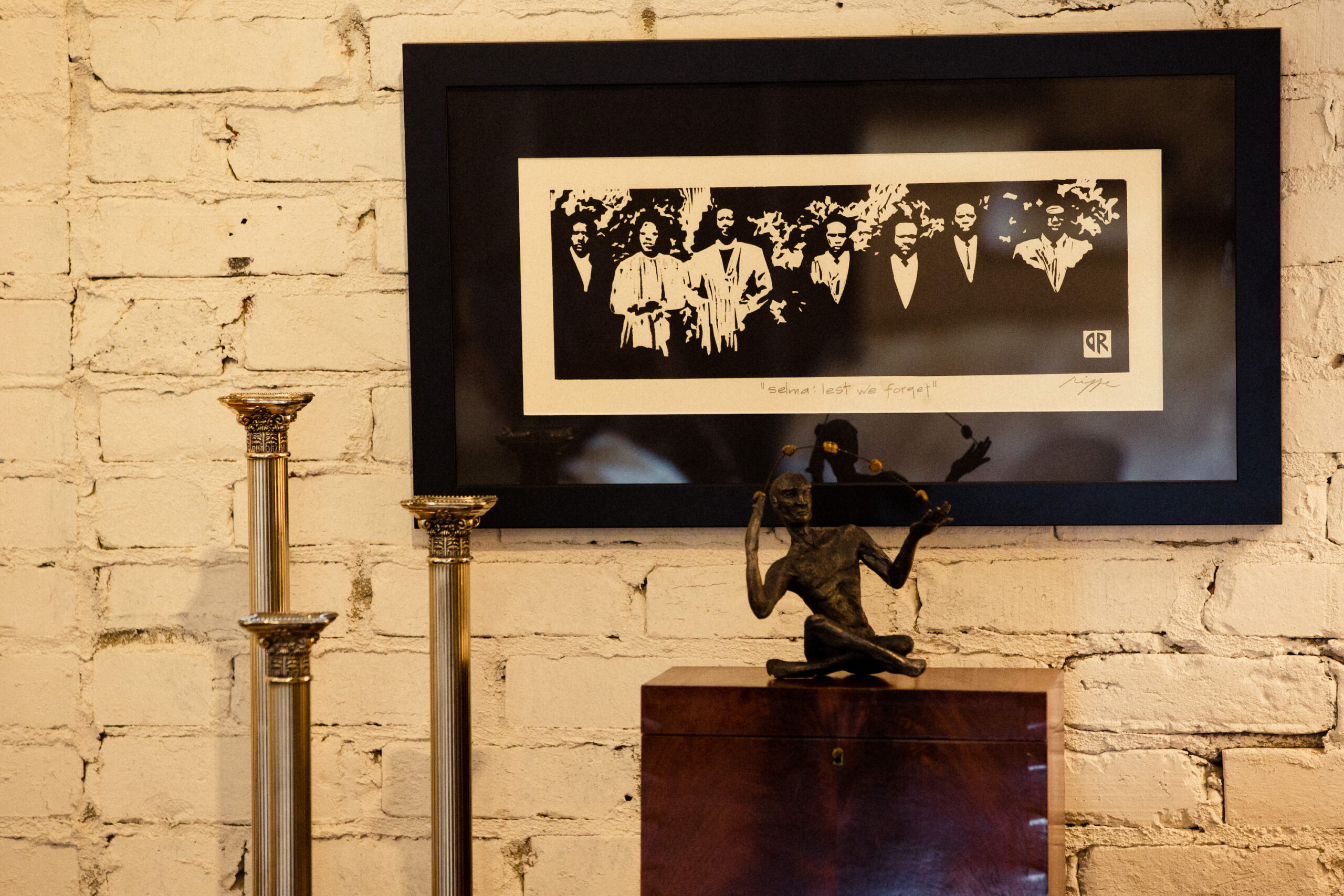 You mentioned professional work that changed you personally. What personal moments have changed you professionally?
You mentioned professional work that changed you personally. What personal moments have changed you professionally?I grew up in a small town where my mother’s family had lived for generations, and they were very active in the community. We were a part of that generation of small-town Jewish merchants that emerged across the country hoping to assimilate into American culture and pursue the American dream. Watching my parents contribute to our community, and knowing that generations of my family before them had done the same, instilled a sense of taking root where you are and giving back where you are.
As a child in Selma, I had only a vague sense that important change was happening around me. But as a product of public schools and integrated secondary schools, I gradually became aware of the social struggle and the two worlds that existed around me.
New Orleans shaped me too. My mother had family there, and we would visit often. My older siblings attended Tulane — where I eventually went to school as well. So New Orleans was like a second home. The rhythm of that city and its European and Caribbean influences felt so exciting and exotic to me as a little boy, and it taught me what a city felt like. It was the only city I knew for many years of my early life.
Looking back, it’s easier to see the moments that were crystallizing for me. I remember being at a little jazz club with some friends during my senior year of college. A couple of friends were heading to law school, and I wasn’t sure what my life plan was. One friend asked me what I was going to do, and I said, “I don’t know, but I know I want to make a difference.”
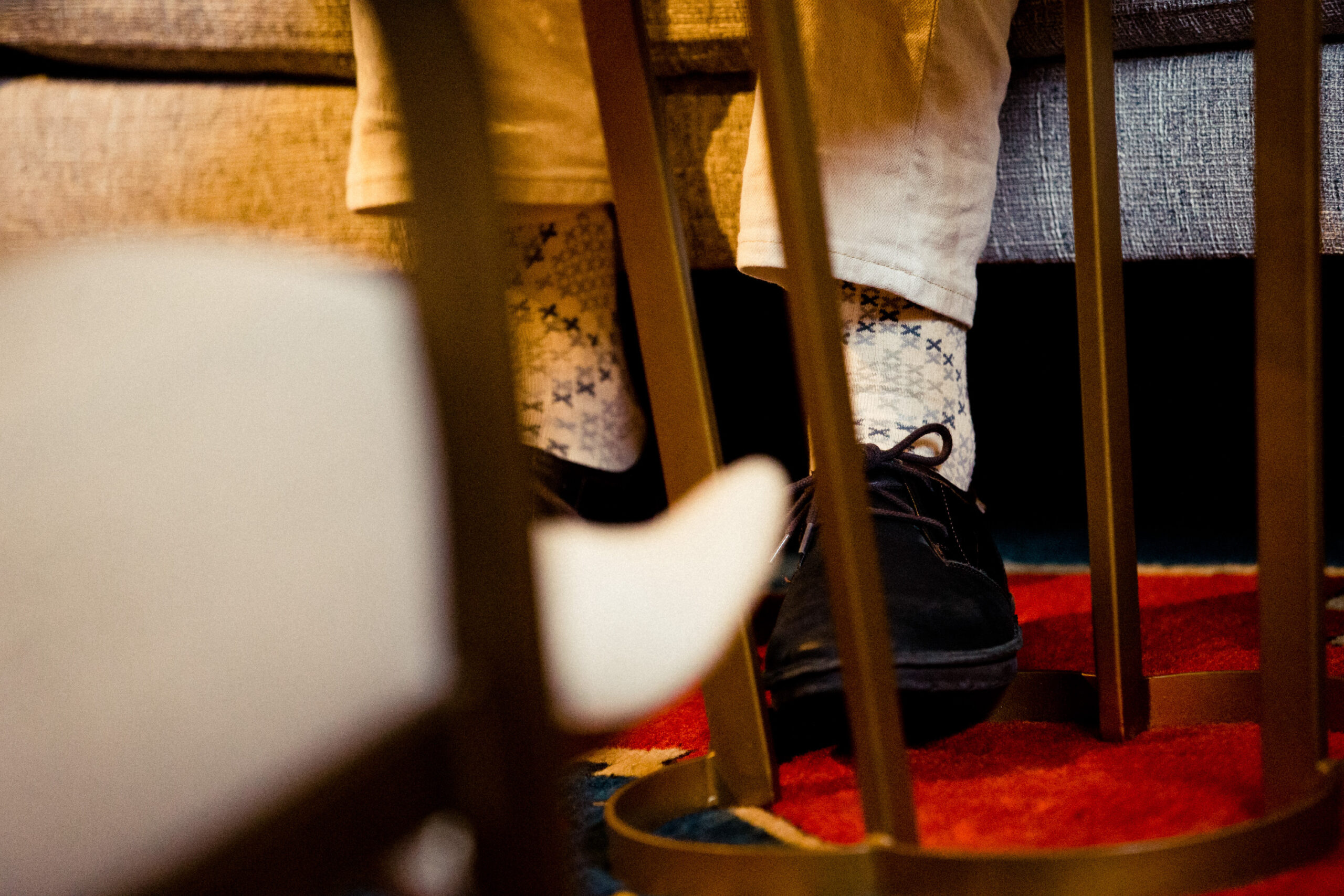 How did that difference begin to take shape? What was the catalyst that set you on your path to a nonprofit career?
How did that difference begin to take shape? What was the catalyst that set you on your path to a nonprofit career?After I graduated from Tulane, I went home to Selma to help with the family business. My dad had passed, and my older siblings were already more established in their careers, so I stepped in. I became a volunteer leader for a new community theatre — reading and recommending scripts, directing most of the shows, and keeping the checkbook. Ten years later, my family’s business was coming to an end, and a friend suggested I make a career and a life out of my involvement in the arts.
My entire 30+ year career in nonprofit has been entirely intuitive. I have no training. I’ve had incredible mentors, but I’ve always gone with my gut.
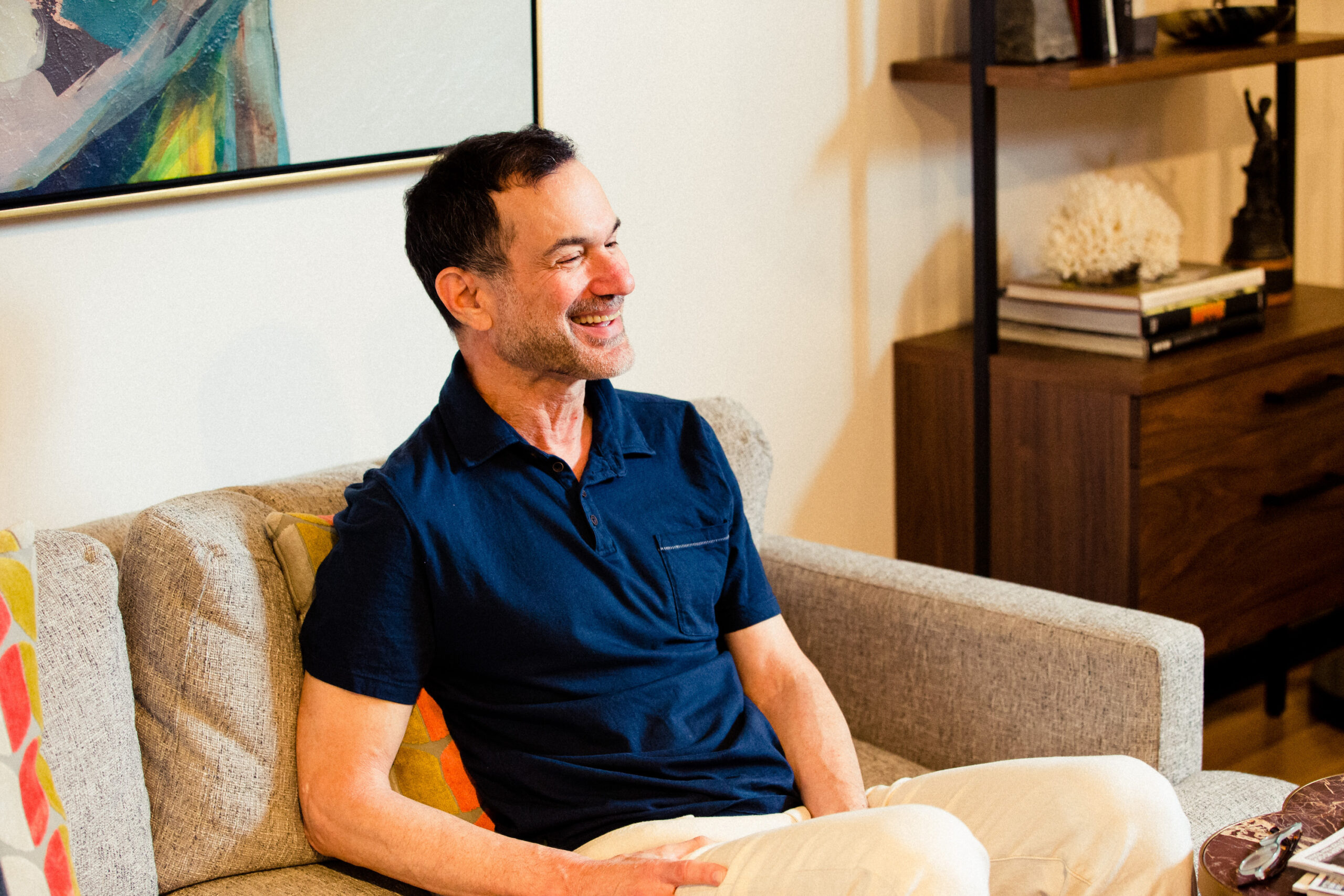 No one gets to where they are alone. You’ve played a pivotal role in helping aspiring entrepreneurs, artists of all mediums, activists, and advocates — as well as members of your staff — realize and rise to their potential. Who were the mentors who influenced you along the way?
No one gets to where they are alone. You’ve played a pivotal role in helping aspiring entrepreneurs, artists of all mediums, activists, and advocates — as well as members of your staff — realize and rise to their potential. Who were the mentors who influenced you along the way?Selma had an arts council that had been dormant for eight years, and I was able to lobby the city council to give me a little money to reinvigorate it — without really knowing what I was doing. I leaned on several people at the Alabama State Council on the Arts to help me learn how to run a nonprofit. Thanks to a couple of inspirational high school and university English teachers, I found myself adept at grantwriting and was able to secure three National Endowment for the Arts grants in four years.
One of those grants was for a project to use storytelling to uncover our Civil Rights history and create dialogue between our Black and white communities. A theatre director was recommended to me who was well known for his ability to blend social activism and the arts. His name was Bob Leonard. I told him about this storytelling residency I had planned. He answered, “Is that what your community has told you it wants?” I’d never been asked that question — especially of myself. That question has guided me for three decades, and it has taught me to always ask first what is needed and not to hold ideas too dear because as ideas evolve, they become better and stronger with collaborative input.
And my wife, Sarah, was a significant influence. She was an artist and a counselor by profession. She taught me a lot about kindness and how big change can be achieved through small and individual acts. We had been married for nearly 30 years when she passed. And then, of course, grief became a major influence.
What did grief teach you?
Grief taught me to seize life. I don’t know that it ever leaves you, but it changes shape over time. I had some dear friends who helped me move through the worst of it. Dick Pigford, our late board chair, was one of those friends.
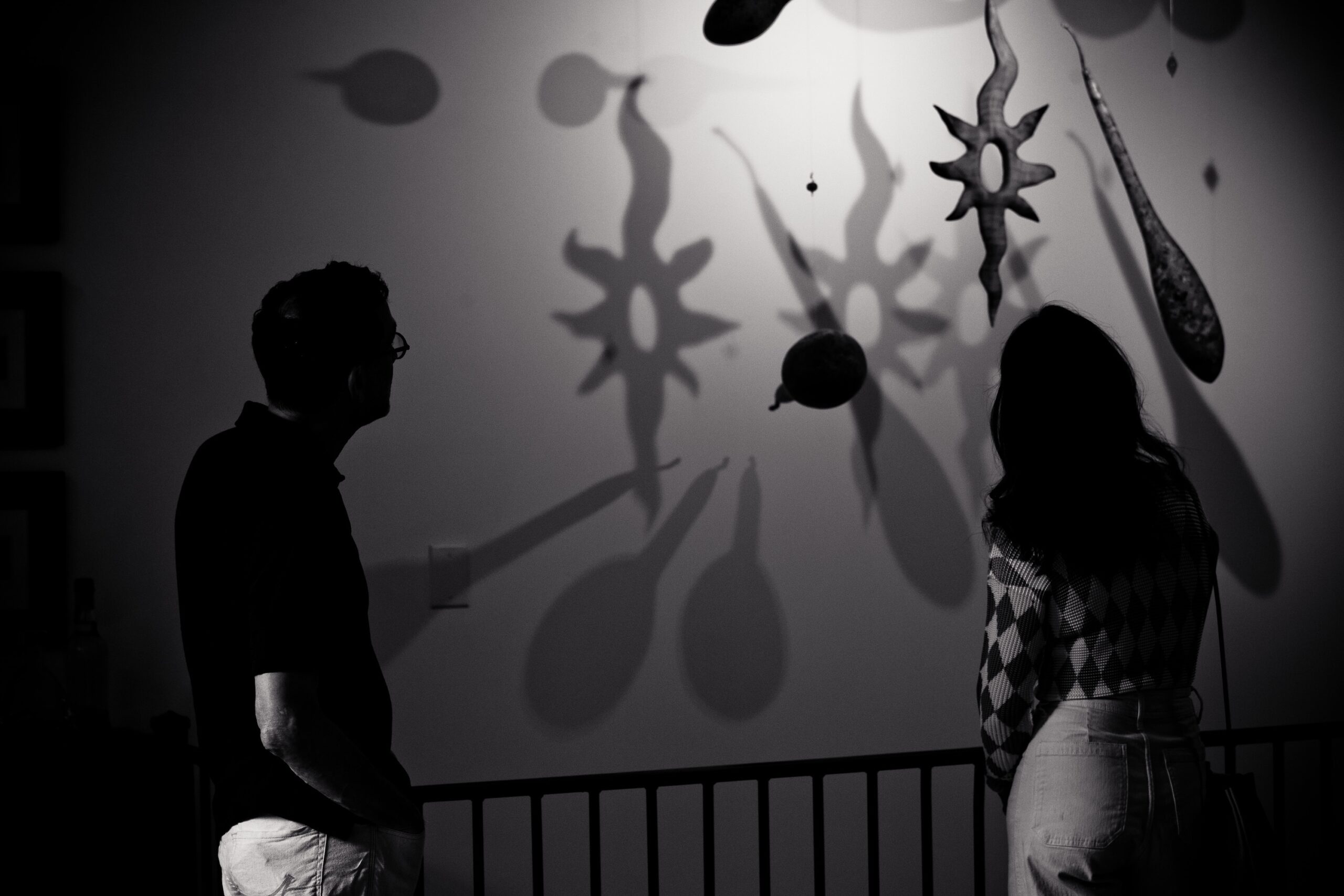 The arts are a powerful vehicle for empathy, expression, and societal change. And when it’s viewed that way, each of us has the innate ability to be an artist. What type of artist are you as you move forward on your own? And what is the message behind your art?
The arts are a powerful vehicle for empathy, expression, and societal change. And when it’s viewed that way, each of us has the innate ability to be an artist. What type of artist are you as you move forward on your own? And what is the message behind your art?Unquestionably, I love music and dance. I’m not saying I’m a great dancer, although, for many years, I took all kinds of dance classes. I’m always singing and dancing around the house. That’s what brings me joy! Although I have some roots in theatre, as I moved into administration, I moved away from actively participating in the arts. Who knows? Maybe I’ll find my way back. I’m a very enthusiastic audience member. I love cooking, and I consider that an art form. And of course, as I move to Portugal, I am looking forward to being immersed in European culture and architecture.
I read once that in any culture that’s closely tied to its ancestors — so not “colonized” I guess, there’s not a word for art. Everything is just functional. Births, deaths, and rites of passage are celebrated. Jewelry indicates who you are, and storytellers are history keepers. Art is life, and life itself is art.
For so long, we’ve created a kind of caste system around art where we’ve put a value on “high art” and created another layer of separation between those who have money – and thereby access – and those who don’t. It’s changed what that simple definition of art is or should be. Now, we have to do the work of untangling that damaged message that art belongs exclusively to one group. It belongs to all of us, and it’s up to future generations to continue making sure that art is accessible to all.
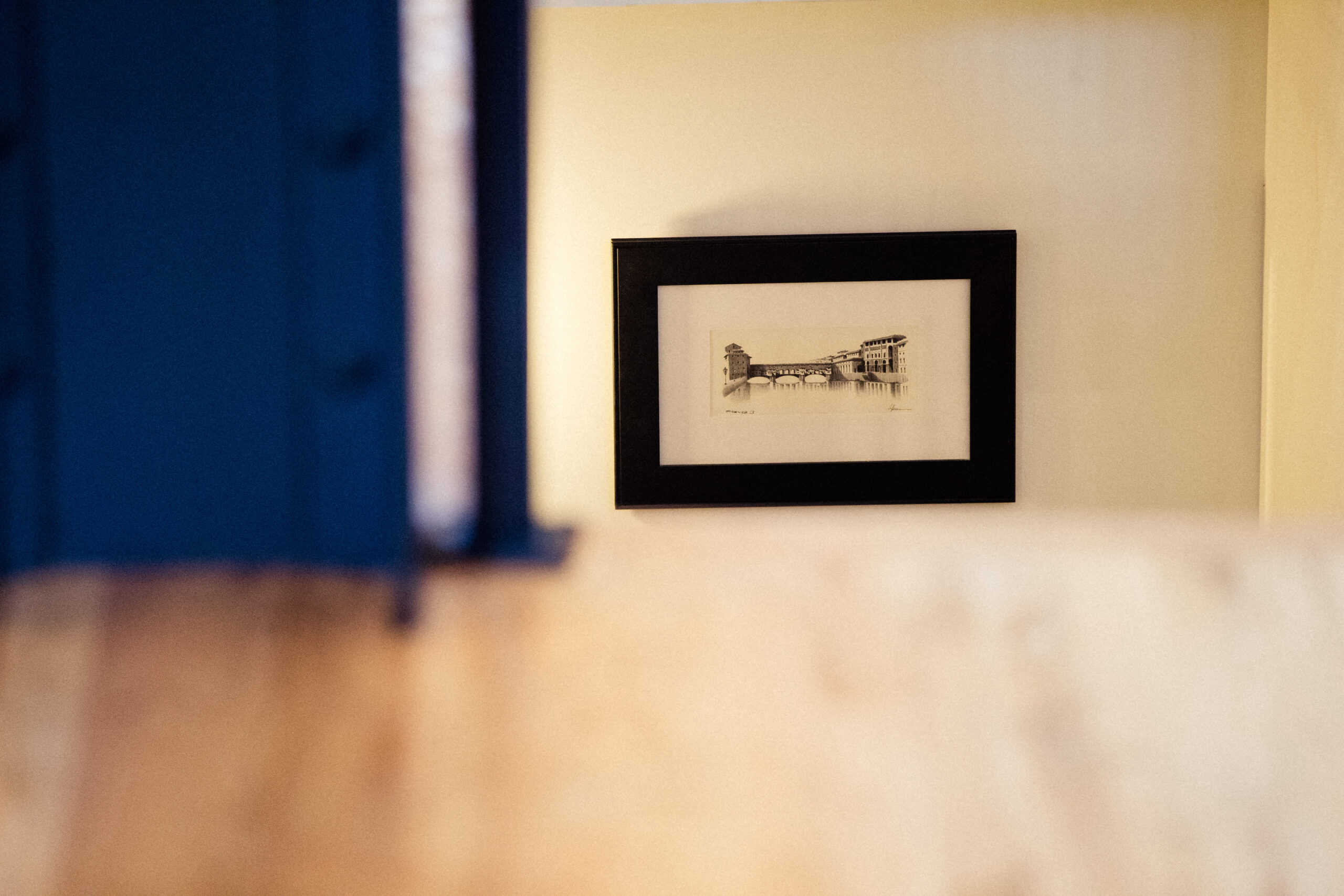 What guiding philosophy would you want to impart to those continuing the work of Create Birmingham?
What guiding philosophy would you want to impart to those continuing the work of Create Birmingham?I want people to believe in and understand the power of the arts for the individual. If art can empower me, then it can empower someone else too. And if it can empower a few of us, it can empower our block. And from our block, it can empower our neighborhood and our city, and our world.
There’s an Ella Baker quote that I keep pinned on my office wall, “Give light and people will find the way.” That light is in each of us — that creative spark. We’re born with it — all children have it. Our imaginations are the first tools we have, but our circumstances often determine whether or not that’s celebrated or hammered out of us. It speaks to the way I’ve gone about my work — figuring out ways to provide access and expanding opportunities for participation. We’ve got to fan the spark.
